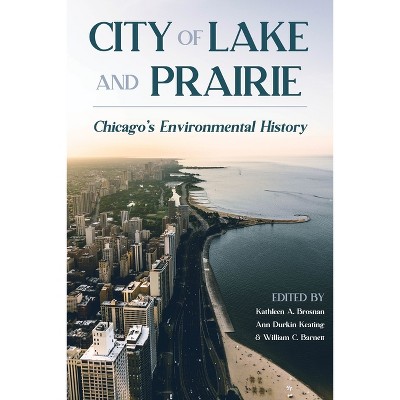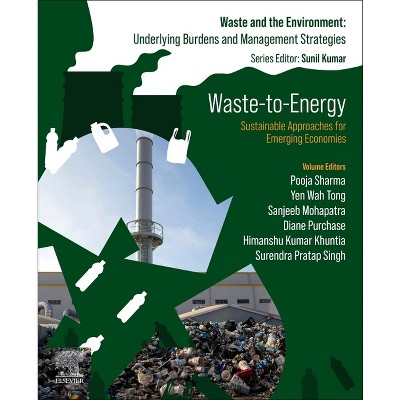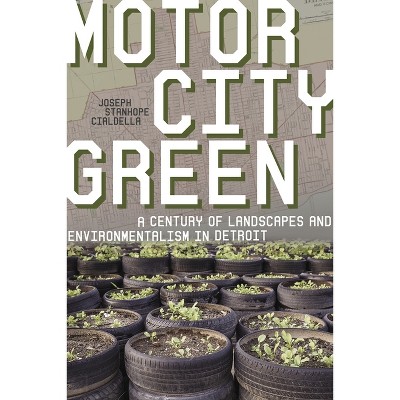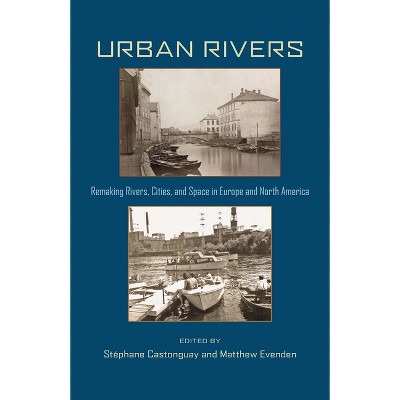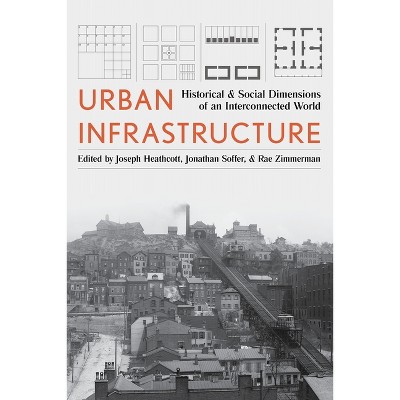London - (History of the Urban Environment) by John Broich (Hardcover)

$55.00 when purchased online
Target Online store #3991
About this item
Highlights
- As people crowded into British cities in the nineteenth century, industrial and biological waste byproducts and then epidemic followed them.
- About the Author: John Broich is assistant professor of the history of modern Britain and its empire at Case Western Reserve University.
- 232 Pages
- Technology, Environmental
- Series Name: History of the Urban Environment
Description
About the Book
As people crowded into British cities in the nineteenth century, industrial and biological waste byproducts, and then epidemic followed them. Britons died by the thousands in recurring plagues. Figures like Edwin Chadwick and John Snow pleaded for measures that could save lives and preserve the social fabric. In London: Water and the Making of the Modern City, John Broich follows the politically charged and arduous task of bringing a municipal water supply to one of the world's most complex urban environments.Book Synopsis
As people crowded into British cities in the nineteenth century, industrial and biological waste byproducts and then epidemic followed them. Britons died by the thousands in recurring plagues. Figures like Edwin Chadwick and John Snow pleaded for measures that could save lives and preserve the social fabric. The solution that prevailed was the novel idea that British towns must build public water supplies, replacing private companies. But the idea was not an obvious or inevitable one. Those who promoted new waterworks argued that they could use water to realize a new kind of British society--a productive social machine, a new moral community, and a modern civilization. They did not merely cite the dangers of epidemic or scarcity. Despite many debates and conflicts, this vision won out--in town after town, from Birmingham to Liverpool to Edinburgh, authorities gained new powers to execute municipal water systems. But in London local government responded to environmental pressures with a plan intended to help remake the metropolis into a collectivist society. The Conservative national government, in turn, sought to impose a water administration over the region that would achieve its own competing political and social goals. The contestants over London's water supply matched divergent strategies for administering London's water with contending visions of modern society. And the matter was never pedestrian. The struggle over these visions was joined by some of the most colorful figures of the late Victorian period, including John Burns, Lord Salisbury, Bernard Shaw, and Sidney and Beatrice Webb. As Broich demonstrates, the debate over how to supply London with water came to a head when the climate itself forced the endgame near the end of the nineteenth century. At that decisive moment, the Conservative party succeeded in dictating the relationship between water, power, and society in London for many decades to come.Review Quotes
A pleasure to read. Broich demonstrates that the resolution of the problems of supplying water to London--the first world city--hampered as it had been by deeply entrenched interests, brought about a new level of ideological politicization of the water industry in Britain. He shows how the dynamics of 'progress' and inertia are not straightforward.-- "Raymond Smith, independent environmental historian"
In this clearly written study . . . the author offers fresh insights into the intricate political maneuverings dealing with London water policy, the tension between Parliament and devolved local authorities, and laissez-faire dogma versus Fabian socialism. . . . A concise, useful examination of a key aspect of London's modern development.-- "Choice"
Much more than an account of the watering of a great metropolis, Broich's book reminds us that cities are infrastructural achievements, that creating infrastructure is complicated and divisive and yet profoundly transformative.-- "Christopher Hamlin, University of Notre Dame"
About the Author
John Broich is assistant professor of the history of modern Britain and its empire at Case Western Reserve University.Dimensions (Overall): 9.3 Inches (H) x 6.2 Inches (W) x .7 Inches (D)
Weight: 1.0 Pounds
Suggested Age: 22 Years and Up
Series Title: History of the Urban Environment
Sub-Genre: Environmental
Genre: Technology
Number of Pages: 232
Publisher: University of Pittsburgh Press
Theme: Water Supply
Format: Hardcover
Author: John Broich
Language: English
Street Date: April 15, 2013
TCIN: 1002819890
UPC: 9780822944270
Item Number (DPCI): 247-38-3245
Origin: Made in the USA or Imported
Shipping details
Estimated ship dimensions: 0.7 inches length x 6.2 inches width x 9.3 inches height
Estimated ship weight: 1 pounds
We regret that this item cannot be shipped to PO Boxes.
This item cannot be shipped to the following locations: American Samoa (see also separate entry under AS), Guam (see also separate entry under GU), Northern Mariana Islands, Puerto Rico (see also separate entry under PR), United States Minor Outlying Islands, Virgin Islands, U.S., APO/FPO
Return details
This item can be returned to any Target store or Target.com.
This item must be returned within 90 days of the date it was purchased in store, shipped, delivered by a Shipt shopper, or made ready for pickup.
See the return policy for complete information.







